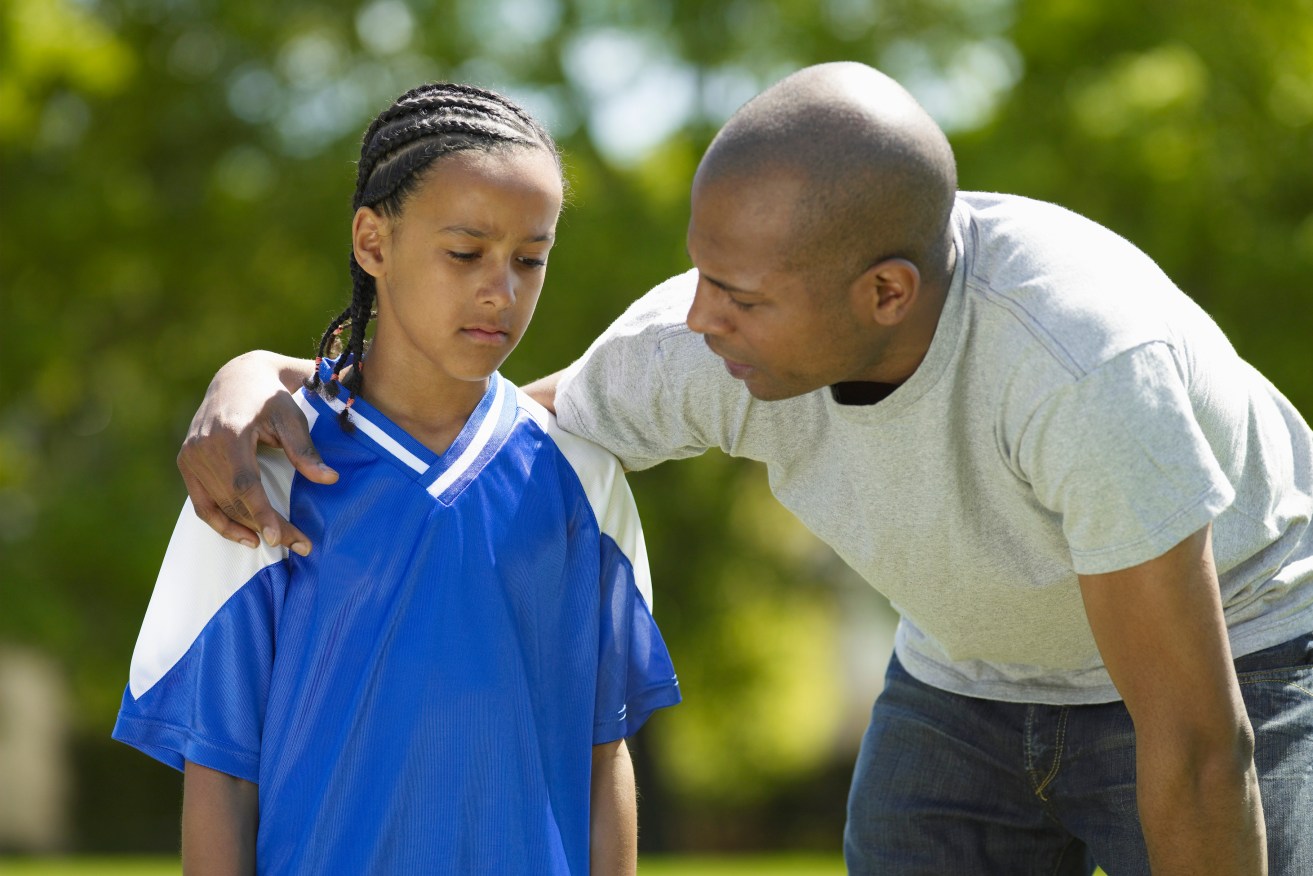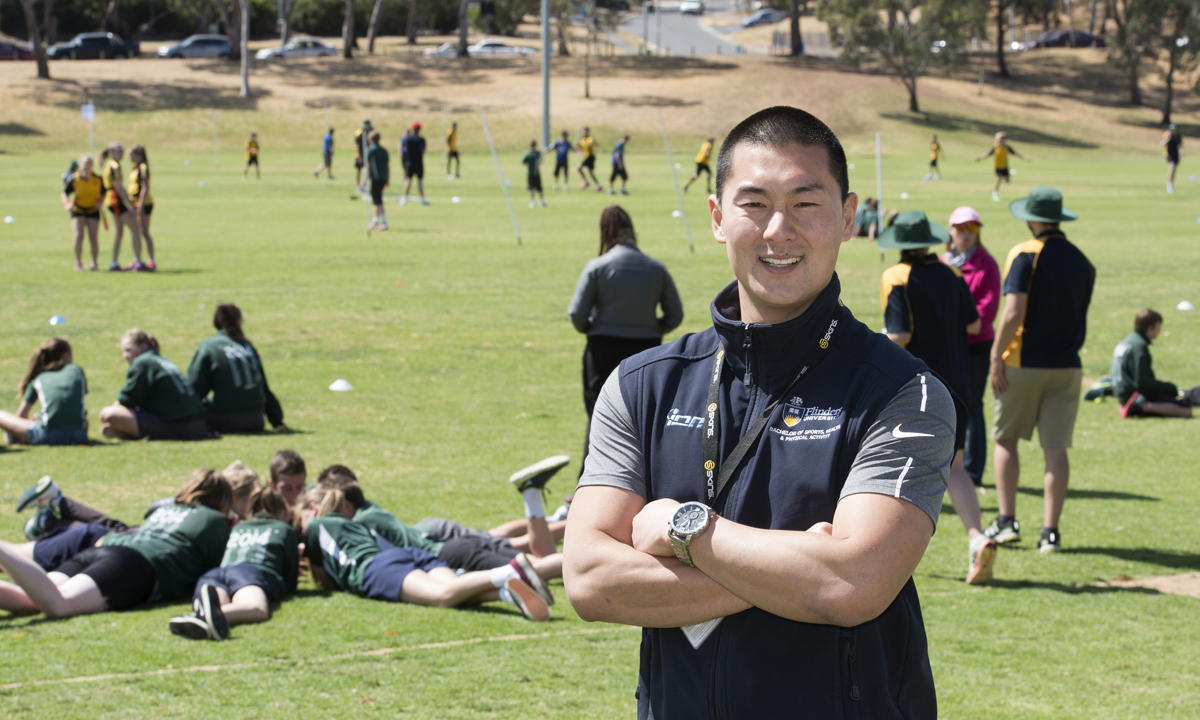How parents put children off their game
Parents should ‘read’ young athletes’ body language before offering advice, says Flinders sports education researcher Dr Sam Elliott.

Father and Son Talking After Soccer Game
Parents should observe their children’s body language and other non-verbal cues before trying to engage in discussion about their athletic performances, says Dr Elliott from the Sport, Health and Physical Education (SHAPE) research centre at the School of Education.
Dr Elliott said there was no “right thing” for a parent to say to a young athlete.
“There are so many variables – the child’s personality, the performance on the day, what part of the season it is, what the coach may have said,” he says.
“However, a parent should be able to ‘read’ his or her child and pick up whether non-verbal cues are matching what your young athlete may be saying, and if they’re not it may be a good idea to wait for another time for the debrief.”
Parents usually believe they are offering positive support and encouragement when they broach the subject of their children’s playing performance from the sidelines, during breaks and in the car after a game.
However, children often pick up different messages than those their parents think they are sending.
“Children will see different meaning in their parents’ comments, particularly if those comments fail to align with the non-verbal behaviour they’ve witnessed during or after the game,” he says.
“At the same time, parents should be sensitive to the non-verbal cues their children are demonstrating, and decide whether it will be helpful to offer any comments – even comments they believe to be supportive and encouraging.”
Dr Elliott’s research included interviews with 52 Australian Rules footballers aged 12 and 13, and 34 parents. Some of the findings are covered in his 2016 paper, with SHAPE director Professor Murray Drummond, During play, the break and the drive home: the meaning of parental verbal behaviour in youth sport.

The athletes’ interviews revealed that their parents’ advice and instructions can embarrass or distress them, and may be confusing if the comments contradict what their coaches say.
The researchers noted comments from the players such as:
- “After a loss, I just want him to leave me alone for a while, and he will keep trying to talk to me about it. It turned into a massive fight.”
- “My friend’s mum, she used to be like, when he’d do a bad kick or something, and she’d come up to him and swear at him and stuff. He would always feel bad.”
- “They say to me, ‘keep going. Don’t let them get in front of you’, it’s too much …”.
“Parental comments about their child’s performance, the umpires or other players’ performances can contribute to increased stress and anxiety and a decrease in sport enjoyment overall, which can potentially determine whether a young athlete wants to continue playing sport,” Dr Elliott said.
He said the parent interviews showed that most parents offer their comments with good intentions. Many believed that simply by being present they were displaying evidence of more support than those parents who did not regularly “show up”.
“Parents perceive their own verbal behaviour as harmless, including nuances of sarcasm toward umpires and critical comments toward children, and the subsequent reproduction of these behaviours among other parents around them normalises it,” Dr Elliott says.
“This verbal behavior can play a role in reinforcing a culture in youth sport whereby critical comments during the game, the break and the drive home, manifest as a ‘normal’ part of the sport experience with ongoing impacts on everyone involved.
“While this culture does not represent a challenging climate for all parents and children, for some it can affect enjoyment of sport in the long term. The behaviours some parents perpetuate during play, in the breaks and on the drive home may be the very behaviours that are problematic for their own children and other young players.”
MCERA, an independent, not-for-profit organisation, provides a conduit through which education research and researchers are made more accessible to the media to improve public understanding of education-related issues.





